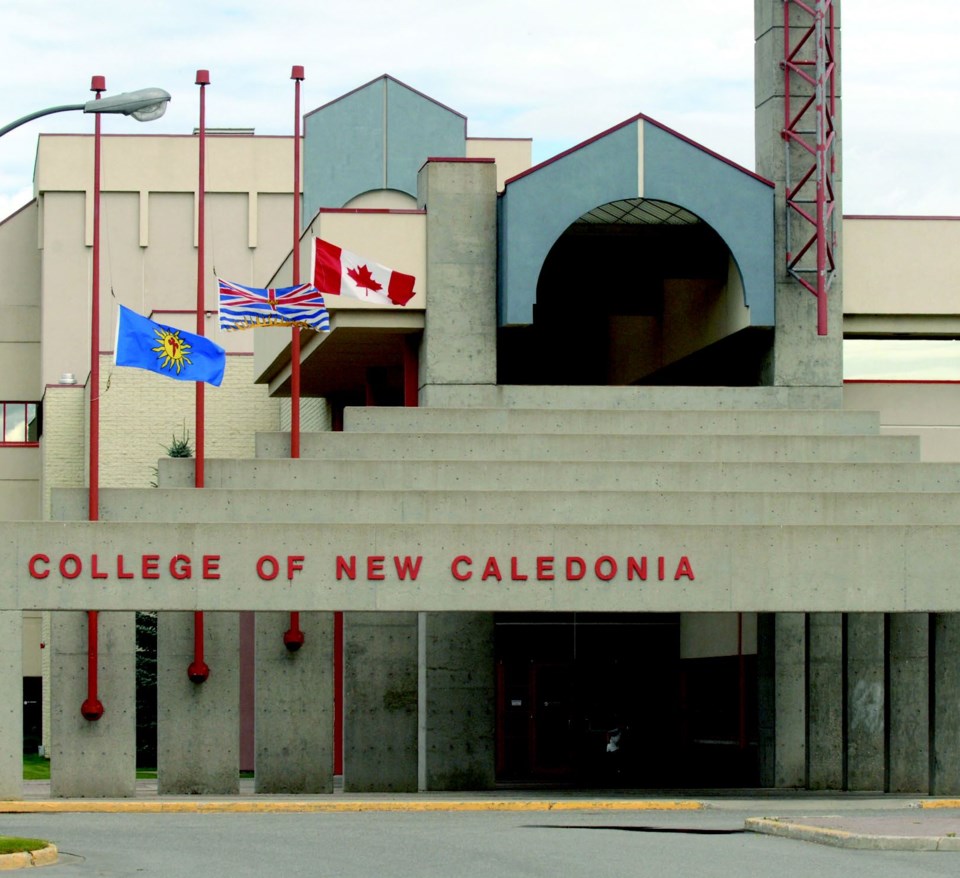College of New Caledonia students will now be expected to pay $533 for previously free high school upgrade courses.
This comes after the provincial government announced in December that it would no longer subsidize courses for graduated adults. Those without Dogwood Diplomas can still access courses like English 12, Chemistry 12 and Math 12 at no cost.
The tuition, approved by the college board Friday afternoon, affects CNC's College and Career Preparation program. The course fee - $533 - was the maximum rate and the amount recommended by government. At the previous board meeting, it discussed course costs between $320 to $540.
"I do believe this represents a break in the chain to other steps forward in their education," said board member and history teacher Sheldon Clare, who voted against the motion. "I don't buy the argument that this makes people have a buy-in."
Sue McAllister, vice president of administration and finance, said the average CCP student takes three courses, making their tuition now $1,599 for a semester.
"We are going to be also looking at ways to designate funds to provide assistance to students who do not qualify for the upgrading grants," said McAllister, referring to the government announcement it would make more grants available to low-income learners.
College president Henry Reiser said CNC would hire someone to help students apply for the upgrading grant.
"Bear in mind that we will be able to compile (data on) the impact of tuition on the most vulnerable learners and bring that back to government and hopefully government will look forward, look at this and consider whether they want to go forward in future with a fee structure for (Adult Basic Education) or CCP," said Reiser, adding the college has a good relationship with the government's education department
CCP teachers Melinda Worfolk and David Rourke attended the public meeting for the vote.
"We know it will affect our students," Worfolk said. "Some of them are worried they will have to put that upgrading on hold."
Rourke, who is president of CNC's faculty association, said the province is to blame for what he sees as a barrier to access to higher education.
"It's the government that's abandoned its commitment to providing access to students in the region," said Rourke pointing to rural schools where students might not have access to certain courses due to low enrolment.
The fees, which start May 2015, reverse a September 2008 provincial policy giving graduated adults free upgrades. The college, however, hasn't charged for these courses since well before then.
Eric Depenau, who is chairperson of the CNC's student union and sits on the Board of Governors, said the union has brought student concerns to government in a meeting after it held a public forum.
"They all expressed unanimously that there would be great difficulty for students to meet that elevated cost, that there would be the potential for lower enrolment, that folks who already face significant barriers would be unable to educate themselves and better their families and their community as a whole."
Depenau was not among the three who opposed the motion.
"The board needs to be unanimous I think in decisions like this, I think when we're making difficult choices I think it's important that we stand together," said Depenau, adding he also feels it is a flawed approach by government. "We really do feel the institution here is largely handcuffed."
At the meeting the board also approved increasing its application fees as well as new material fees.
The college has also approved a two per cent increase on all tuition fees starting August 2015, in keeping with provincially approved inflation rates for all institutions.



